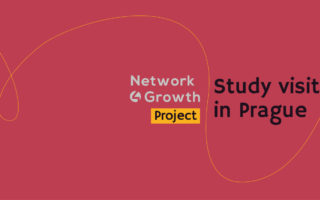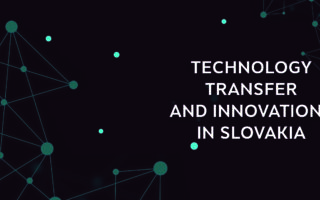What's
Slovakia needs better support for digitalization and innovations of SMEs
Bratislava, Slovakia – In order to ensure that Slovakia keeps pace with current economic and technological trends and avoids falling behind other EU countries, it is crucial to draw the government’s attention to the issues of digital transformation and innovation. On Thursday, June 22, 2023, representatives from political parties and organizations that unite prominent innovative and technological companies gathered in Bratislava. The purpose of this meeting was to address the challenges within Slovakia’s innovation ecosystem. During the meeting, the organizations presented the Digital Manifesto and proposals for innovative measures to potential new political leaders.
The small and medium-sized enterprise sector has not been a priority for the government of the Slovak Republic for a long time, despite representing over 95% of all companies in Slovakia, contributing more than half of the value added to the economy, and employing approximately 75% of the active workforce. Slovakia’s digital competitiveness has been on a gradual decline since 2014, currently being 23rd out of 27 EU member states in the Digital Economy and Society Index (DESI) 2022. Another long-term problem of Slovakia is our position at the bottom of the global competitiveness rankings. According to the latest rankings published on June 20, 2023, Slovakia ranks 53rd out of 64 assessed countries. Slovakia’s ranking in the Global Digital Competitiveness Index for 2022 remains unchanged at 47th place, the same position as in 2021. Its performance in the Global Innovation Index is also disappointing. Following Romania, it holds the second-lowest innovation score for the year 2022 among the EU 27 countries. The deficiencies in innovation indicators are further reflected in the European Innovation Scoreboard, where Slovakia falls into the category of “new innovators,” showing the highest need for innovation but experiencing the slowest growth.
A group of organizations, led by Vacuum Group, KInIT, AmCham Slovakia, and SAPIE (Slovak Alliance for Innovative Economy), organized a meeting with representatives of political parties. Their objective was to boost Slovakia’s innovation rankings and improve its digital competitiveness. They aim to align Slovakia with more advanced countries and draw inspiration from successful examples of transformation into innovative and technologically advanced economies. With the upcoming early elections in sight, the main goal of this meeting was to highlight the persistent shortcomings in digitalization and innovation in Slovakia and advocate for their inclusion in the election agendas of political parties.
The meeting included the presentation of a package of innovative measures addressing the most pressing problems in the innovation ecosystem and proposing solutions based on research and best practices from abroad. The working group, consisting of experts in business, innovation, law, science, and research, identified three priority areas: quality workforce (supporting entrepreneurship, labor laws, streamlining higher education), supportive business environment (reducing bureaucracy, motivating taxation), research and innovation (organizational consolidation of research and innovation management, measures supporting tech transfer, funding support, and more).
The second part of the meeting focused on the presentation of the Digital Manifesto document. This manifesto builds upon several action plans and national strategies that were created earlier. It also takes into account the prior initiatives undertaken by SAPIE to promote business digitalization in Slovakia. Its primary focus is to identify key priorities that are essential for supporting the advancement of digital transformation among small and medium-sized enterprises in Slovakia. These priorities include enhancing education in digital skills, facilitating access to data from public authorities, ensuring the application and enforcement of existing cybersecurity standards, followed by the digitalization of public services, effectively implementing EU regulations focused on digitalization, and providing funding of projects and initiatives related to digitalization.
In collaboration with other organizations, SAPIE is planning to continue the meetings with political parties to ensure better implementation of innovative and digital measures and contribute to Slovakia’s smooth journey towards becoming an innovative and digitally advanced country.


